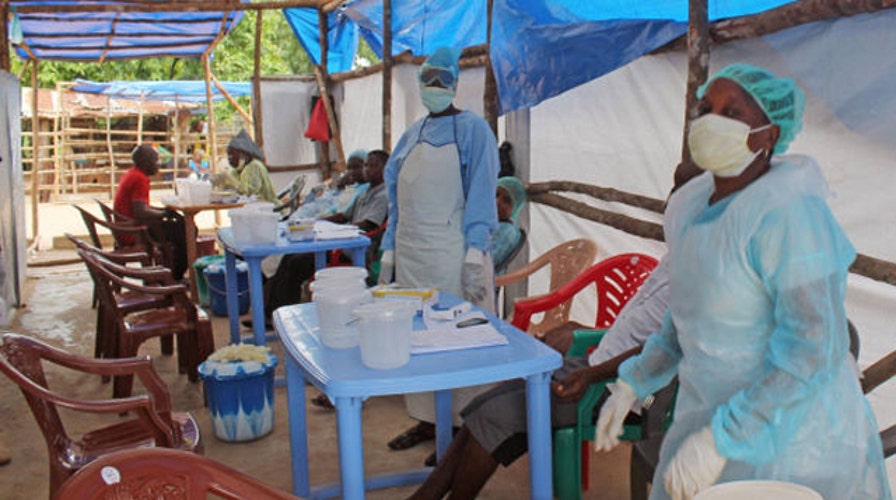Two missionary groups have ordered the evacuation of their non-essential personnel from the West African country of Liberia after a doctor and a missionary contracted the Ebola virus last week.
SIM USA President Bruce Johnson announced Tuesday that his group and Samaritan's Purse decided on the evacuation following an upsurge in the number of Ebola cases in Liberia. Johnson said the logistics of the evacuation are being determined.
Spokesman Palmer Holt told the Associated Press approximately 60 employees were to be evacuated. A statement from SIM says none of the evacuees is displaying any symptoms of Ebola, but all are being monitored continually.
Dr. Kent Brantly, of Fort Worth, Texas, and Nancy Writebol, of Charlotte, are being treated for the deadly virus in a hospital on the outskirts of Monrovia, Liberia's capital.
"The next few days are critical in assessing the recovery of these Ebola crisis responders," Johnson said in a statement. "SIM and Samaritan’s Purse invite people to pray for the full restoration of our two workers and for the stemming of the spread of this virus across Liberia and other nations of West Africa."
Dr. Brantly's wife, Amber, said in a statement released by Samaritan's Purse Tuesday that her husband was "very physically weak but his spirit has been determined throughout this ordeal."
"As people with a deep faith in Jesus, we sincerely thank the thousands of people worldwide who have lifted up Kent and this dreadful situation in prayer," the statement said. "We continue to lean on that faith and take great consolation in our God in these times."
On Wednesday, Samaritan’s Purse released an update saying both Brantly and Writebol “have shown slight improvement in the past 24 hours. However, both remain in serious condition...” The group asked for people to continue to pray for those affected by Ebola.
Amber Brantly and the couple's two children, aged 3 and 5, had departed Liberia for Texas to attend a wedding days before Brantly fell ill. They are staying with family in Abilene and, while not subject to quarantine, are monitoring their temperatures for an early sign of viral infection, a City of Abilene spokeswoman told the Associated Press.
The current Ebola outbreak is the largest in history, with over 670 deaths blamed on the disease in Sierra Leone, Liberia, Guinea, Nigeria. The disease has no vaccine and no specific treatment, with a fatality rate of at least 60 percent.
Also on Tuesday, the West African regional airline ASKY said it was temporarily halting flights not only to Monrovia but also to Freetown, Sierra Leone. Flights will continue to the capital of the third major country where people have died — Guinea — though passengers departing from there will be "screened for signs of the virus."
Passengers at the airline's hub in Lome, Togo also will be screened by medical teams, it said.
The measures came amid concern by health officials that a 40-year-old U.S. citizen named Patrick Sawyer may have passed the virus to other travelers while flying one of the airline's planes between Liberia, Ghana, Togo, and Nigeria, where he died of the virus July 25.
At the Liberian Finance Ministry, where Sawyer worked, officials announced they were temporarily shutting down operations. All employees who came into contact with Sawyer before he left for Nigeria were being placed under surveillance, it said.
The World Health Organization says the risk of travelers contracting Ebola is considered low because it requires direct contact with bodily fluids or secretions such as urine, blood, sweat or saliva, experts say. Ebola can't be spread like flu through casual contact or breathing in the same air.
Patients are contagious only once the disease has progressed to the point they show symptoms, according to the WHO. And the most vulnerable are health care workers and relatives who come in much closer contact with the sick.
Still, the early symptoms of Ebola — fever, aches and sore throat — mirror many other diseases including malaria and typhoid, experts say. Only in later stages of Ebola do patients sometimes experience severe internal bleeding and blood coming out of their mouth, eyes or ears.
The Associated Press contributed to this report.

